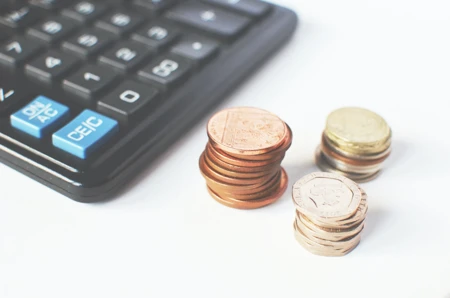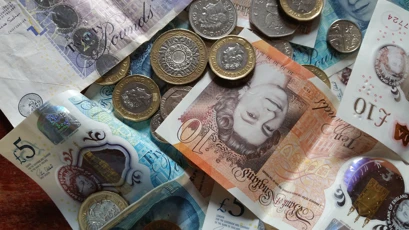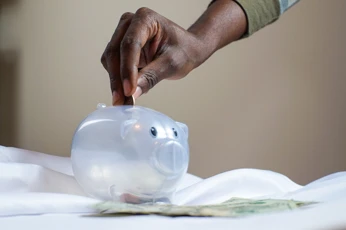Saving strategies
Saving challenges are a great way to build up funds if you are looking into alternative saving methods instead of just putting away a set amount each month. For more general information on saving money, check out our article on starting a savings habit.
How our app can help you save for a deposit
Before we dive into our savings tricks and techniques, we wanted to take a moment to highlight the savings tool built into our app.
By tracking your savings, you can see how close you are to your goals, and what areas you could improve on to see results. The app is also packed with helpful articles filled with information about savings, deposits, and how to get a mortgage.
You can download the app for free by following the links below:
52-week challenge
This is a great way to start saving up a deposit if you can’t put away large amounts of your monthly wage.
During the first week you put away £1 (usually in a high-interest savings account). In week two, you put away £2. Then in the third week, you put away £3 and so on. By the time you make it to week 52, you’ll have saved up £1,378 and that doesn’t include any interest you may have accrued over the course of the year!
The £5 challenge
Want to save £6,890 over the course of a year? Of course you do! The fiver challenge is basically the same as the 52-week challenge, except instead of going up in multiples of £1, you go up in multiples of £5. By the final week, you’ll be depositing £260, taking your total to £6,890.
No-spend months
In this challenge, you choose a predetermined period of time (it could be a month, it could be a week - it’s up to you) and don’t spend anything for that period that is not essential.
This means no spending on takeaways, clothes, nights out, or any other thing you enjoy that doesn’t fall under your essentials category. Once you reach the end of the challenge, you take the amount that you would have usually spent on your non-essentials and put it straight into your savings account.
Important information
Your home may be repossessed if you do not keep up repayments on your mortgage.
There may be a fee for mortgage advice. The actual amount you pay will depend on your circumstances. The fee is up to 1% but a typical fee is 0.3% of the amount borrowed.
Related Articles
How to start a savings habit
Starting a savings habit is a crucial step towards achieving financial stability and securing your future into retirement.
Busting the myth of the big deposit
You can get on the property ladder without a large deposit. Here's how.
How to manage your own finances
Let’s discuss getting your finances in order, so that you're in a great position to get a mortgage when the time comes.
No posts currently available







